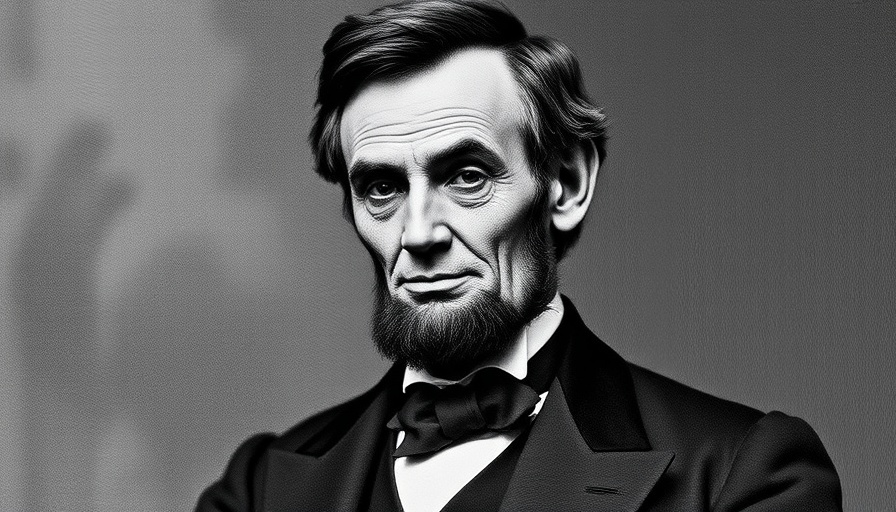
Beyond the Infamy: Understanding John Wilkes Booth
The assassination of President Abraham Lincoln has been etched into the annals of history as one of the most shocking moments in American politics. Yet, as Scott Ellsworth delves into the life of John Wilkes Booth in his new book, Midnight on the Potomac, he urges readers to peel back the layers of a man's identity overshadowed by a single, horrific act. In a world rife with misinterpretations of historical figures, Booth's story is particularly relevant in today’s climate where actions are too often reduced to black-and-white narratives.
A Mirror to Modern Divisions
In exploring Booth's complexities, Ellsworth draws parallels between the fractured society of the 1860s and today's America. “The division we face now echoes the tensions of the Civil War,” Ellsworth remarks, reminding us that the thread of history often weaves through the present. With divisions in political ideologies and social discourse intensifying, understanding historical figures like Booth can help provide context for current societal challenges.
Rethinking the Notorious Assassin
Booth has typically been viewed through a narrow lens of infamy—painted as the lone assassin defined by madness and desperation. However, Ellsworth’s meticulous research reveals a man who was not simply a villain. According to Ellsworth, Booth was once celebrated as a talented performer, a fact forgotten in the rush to vilify him. The public was captivated by his theatrical prowess, and Ellsworth underscores that this popular reception contributes to a more nuanced understanding of Booth’s psyche.
Echoes of History: Lessons in Identity
In examining Booth’s motivations and public reception, readers gain insight into how narratives are constructed and deconstructed over time. Just as Booth's legacy is shrouded in a single event, so too can the identities of contemporary figures be oversimplified. Ellsworth’s work encourages a more compassionate examination of those who have become emblematic of societal failures, prompting readers to question: what narratives are we perpetuating today?
The Role of Storytelling in History
Ellsworth’s background as a historian with a flair for storytelling informs Midnight on the Potomac. He couples rigorous scholarly research with vivid narrative techniques, aiming to engage a broader audience by transforming academic history into captivating literature. This approach exemplifies the power of storytelling not just in entertainment, but in fostering critical understanding and dialogue around the past.
Conclusion: Actions and Perceptions
As we consider Booth’s story, we are reminded of how history and personal identity intermingle. Ellsworth emphasizes that unfurling such narratives is essential for acknowledging the human elements behind infamous actions. In a world where historical figures are often judged hastily, Ellsworth invites readers to delve deeper and consider the complexities of their lives and legacies.
This exploration is more than a reexamination of Booth; it is a call to foster nuanced discussions around identity, history, and the way we tell stories. As we navigate our paths as digital nomads, equipped with the context of our global surroundings, embracing such multilayered insights can lead to more informed and empathetic perspectives.
To truly understand ourselves and our world, we must connect with history beyond the surface, allowing the stories of the past to inform our present. Grab a copy of Midnight on the Potomac and discover a story that challenges your perceptions.
 Add Row
Add Row  Add
Add 




Write A Comment